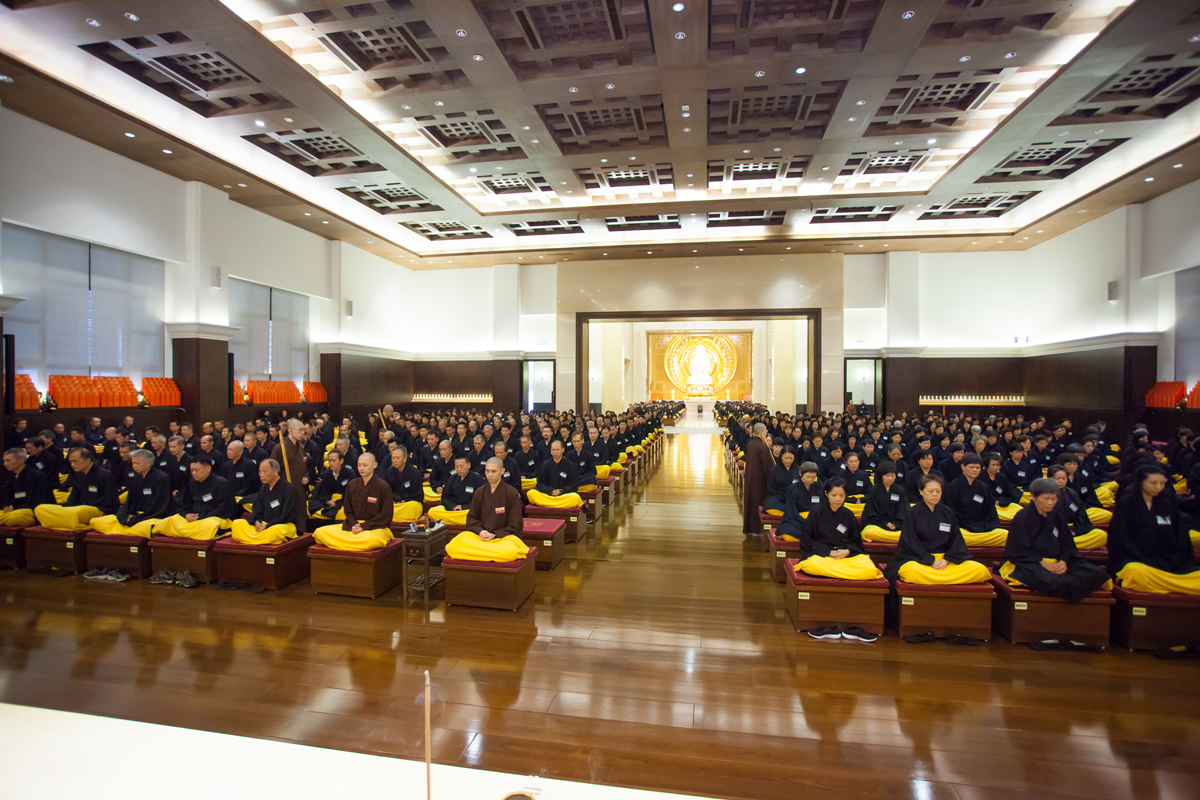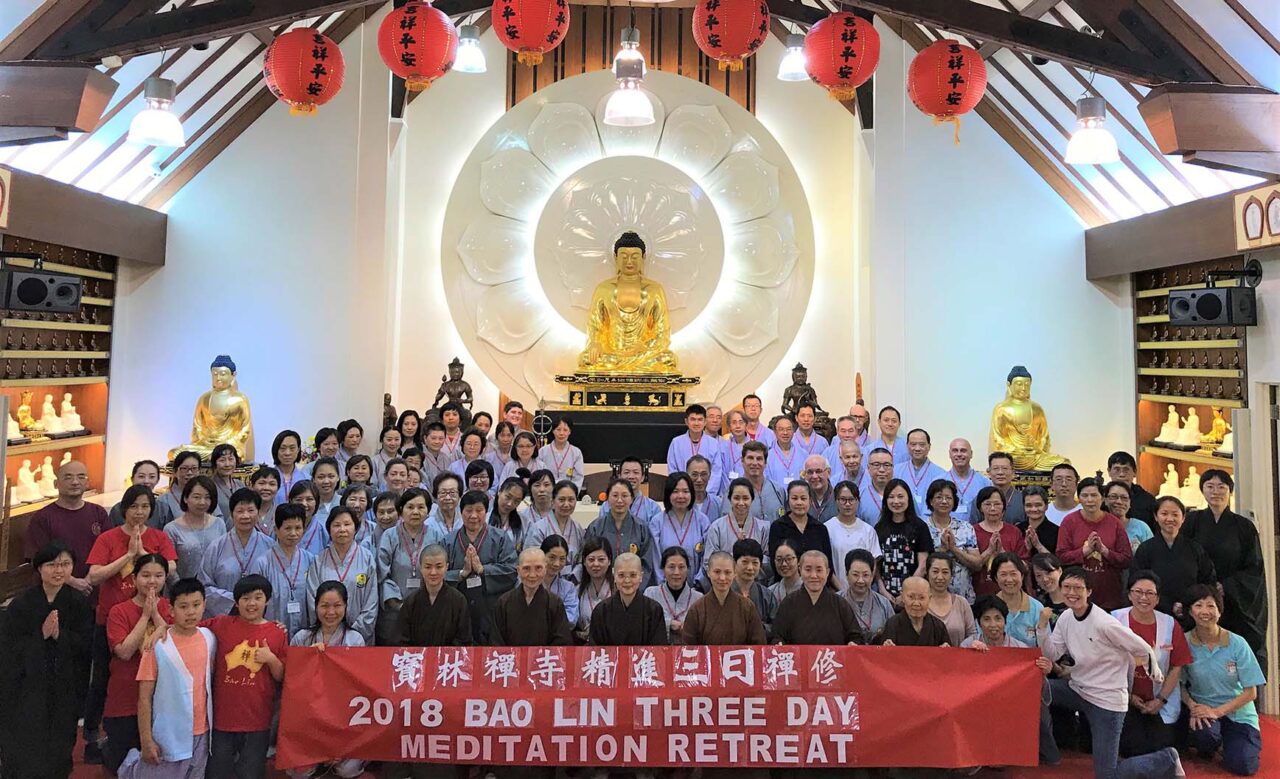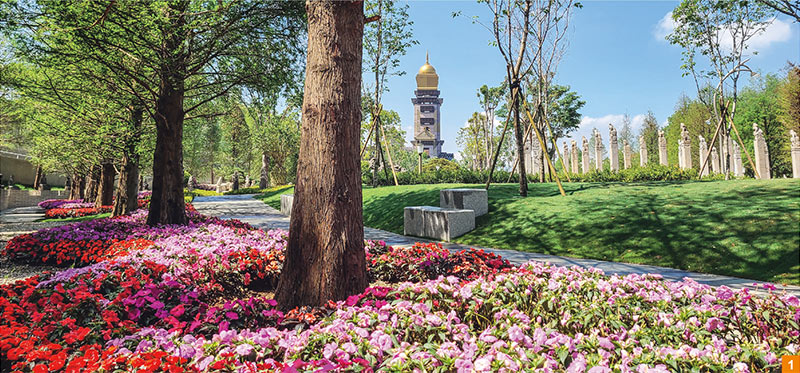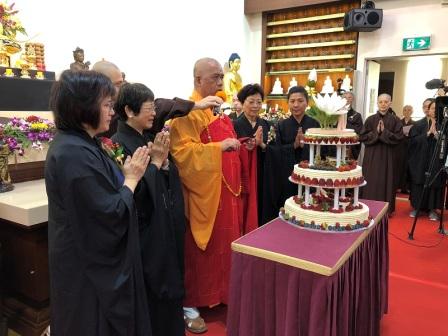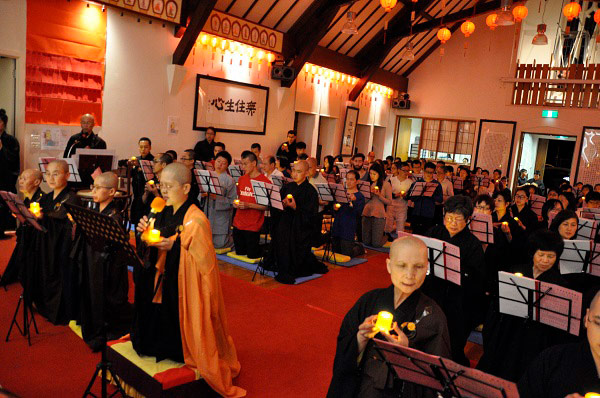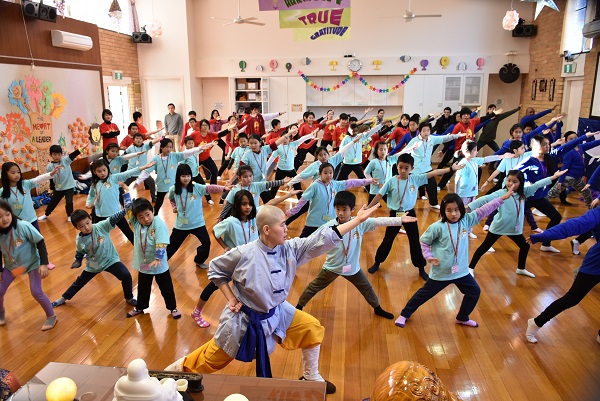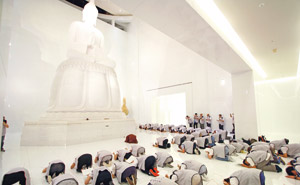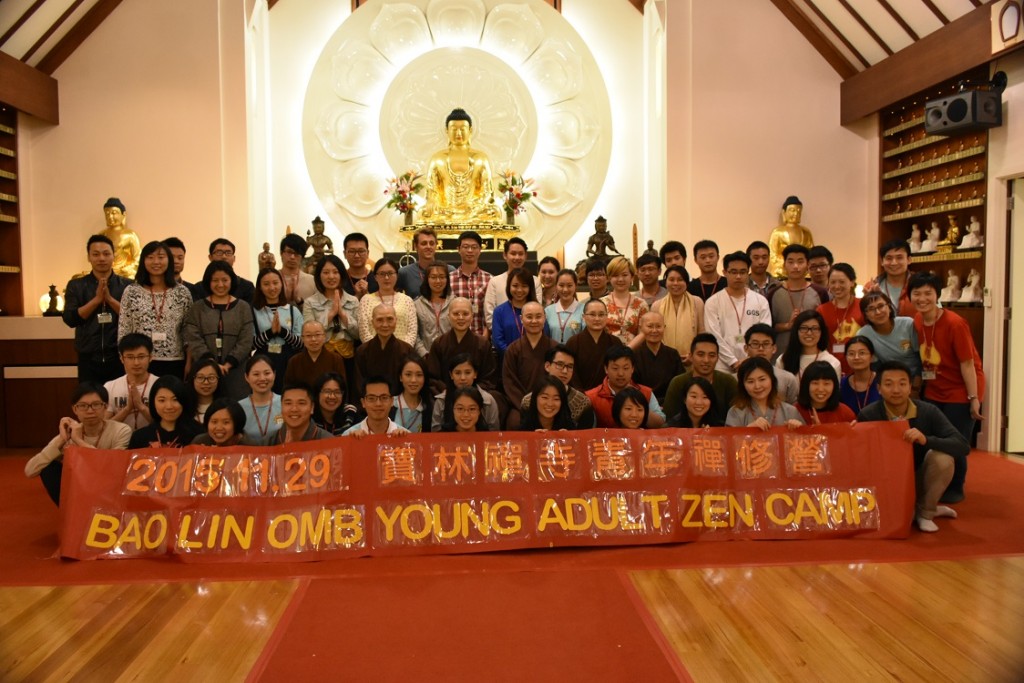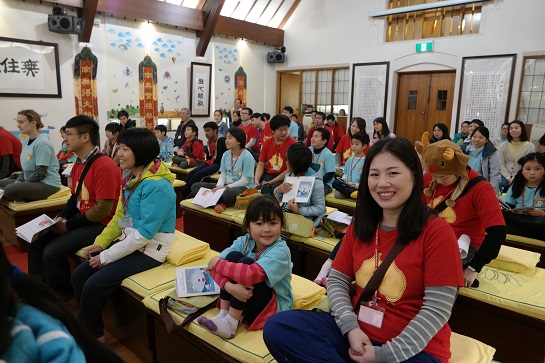Sutra class Fa Shun
The Liang Huang Jewelled Repentance Ceremony was a 9 days event. Abbess and Shifus were wonderfully conducting and leading the entire ceremony in a solemn manner. I was deeply absorbed in it. However, the next moment they walked off the Zen Hall, they were back in their usual selves and not attaching to their roles in the ceremony and the wholesomeness they brought forth to the disciples and participants. Outside the Zen Hall, I could see the Abbess busily mingling with everyone, other Shifus, one preparing for the next session; one go to the kitchen making sure the yummy food was on its way and one answering questions from various teams. All Shifus are living examples of letting go and without attachment.
Sutra class Fa Yuan
Sincerely thank the abbess, all shifus and all disciples make the Liang Huang Repentance Ceremony Successful. the abbess’s words keep me going, gave me strength to live this life.
Swee
Thank you to all the shifus for the melodious chanting. The event was so well organised and am sure all participants, like myself, have benefitted greatly.
Thanks for feeding my mind, body (all the foods) and soul (all the repentance made)

